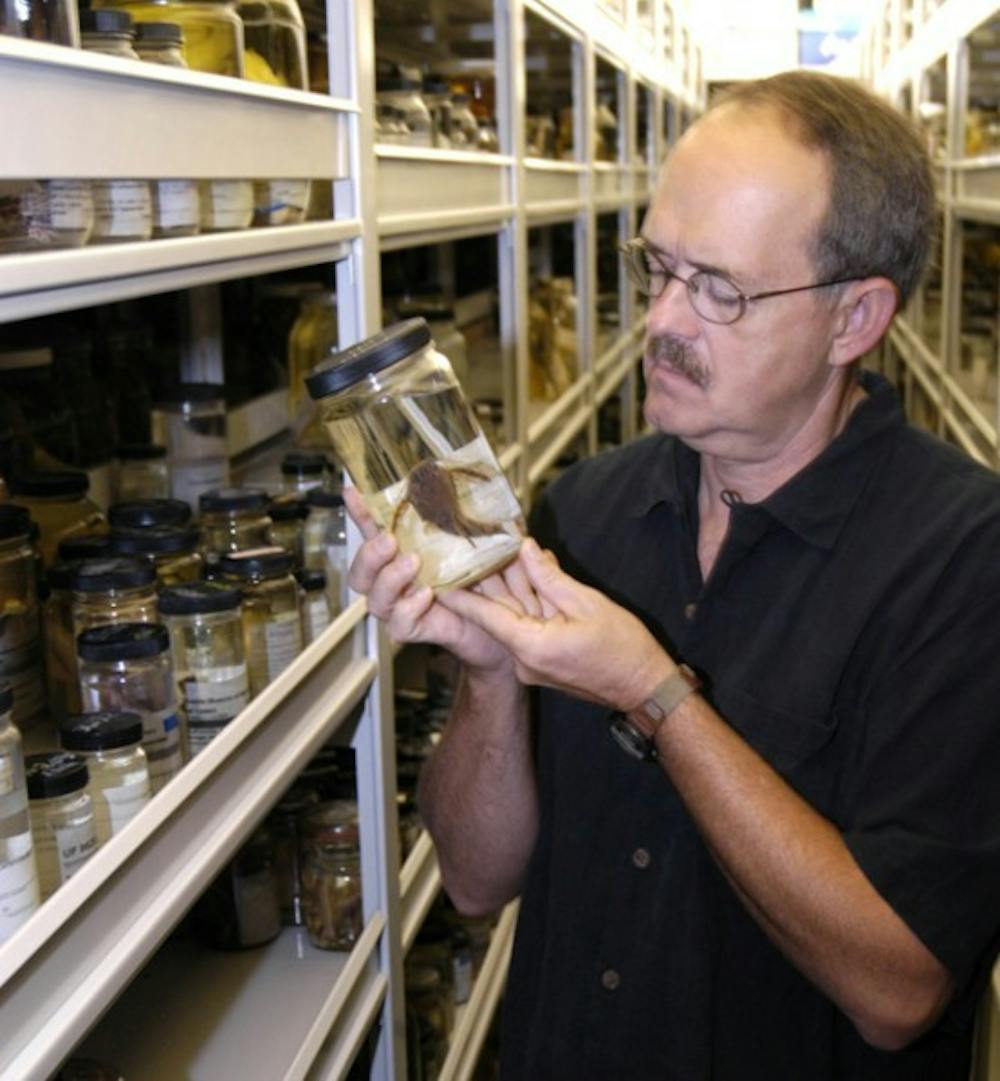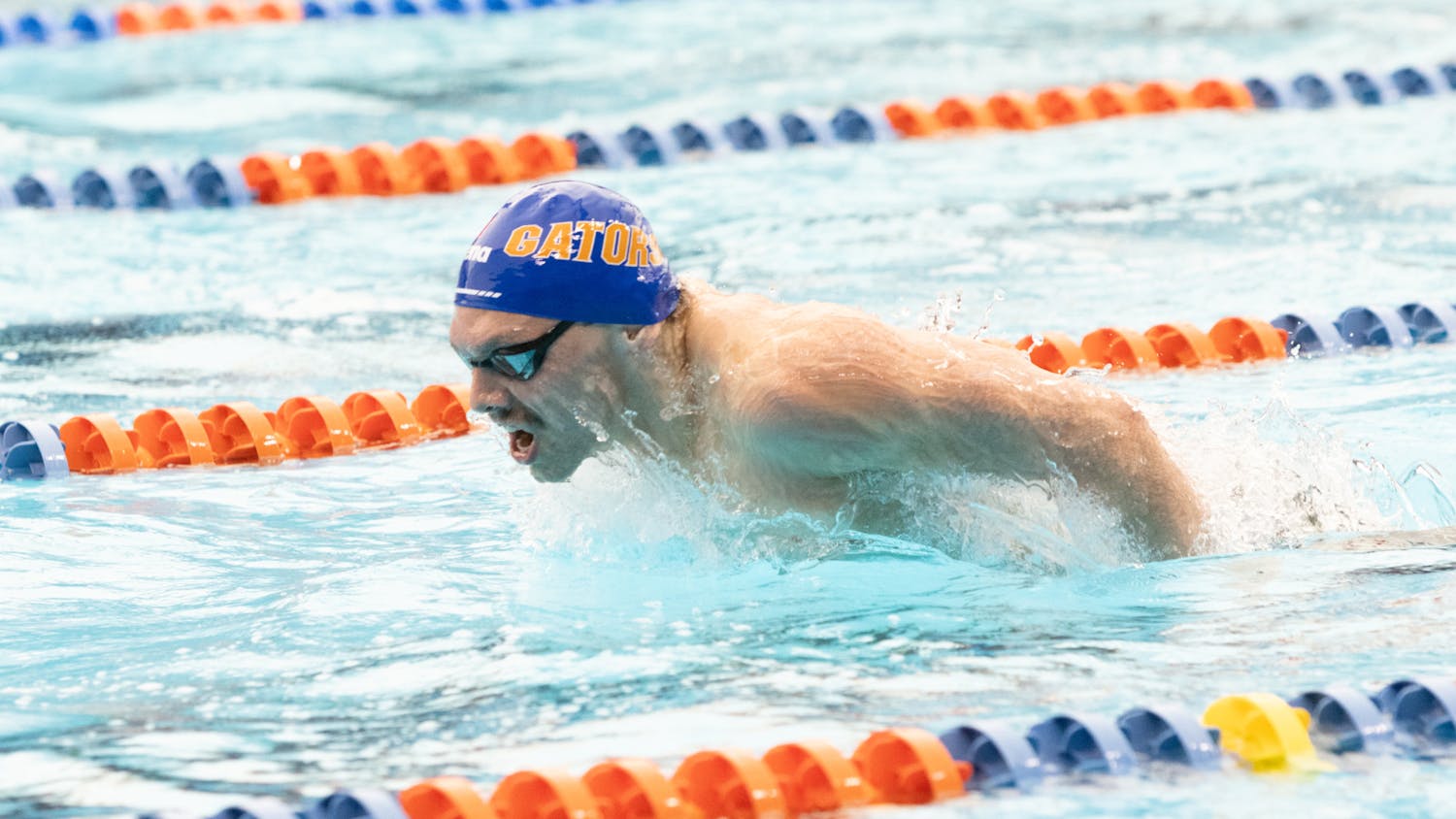Holding a two-inch fish, Larry Page runs his thumb along the yellow skin beneath its eye.
Peering through his glasses, he looks for a structure called a suborbital flap.
It’s not there.
He flips through a book compiled by other experts, then turns back to the fish. Running his thumb beneath its eye again, he smiles.
“Ahhhh.”
The fish is a new species — a specimen from Thailand that is subtly yet vitally different from similar fishes.
Page, an ichthyologist — one who studies fish — at UF has received more than $7 million from the U.S. National Science Foundation’s Planetary Biodiversity Inventory to travel the world in search of undiscovered fish species.
To some, a tiny fish in Thailand isn’t much of a marvel. But to understand an ecosystem, you have to understand those little critters. It’s like watching an orchestra or a football game, Page said. You can’t understand what’s going on if you don’t know what each musician or player is doing.
“Everybody’s using oxygen from plants. They’re eating plants and animals. Everything is about biodiversity,” he said. “What amazes me is that we keep having to explain this to people.
“I’m sort of at a stage in my life where I think I should be pulling things together.”
Page worked for years at the University of Illinois, his alma mater, as a professor and as director of the Center for Biodiversity at the Illinois Natural History Survey. He later joined the NSF.
He retired to Florida in 2002 but couldn’t keep away from the lab.
When the position for curator of fishes at UF’s Florida Museum of Natural History opened up in 2003, Page promised to fill in for a year or two without pay. He only recently began getting paid regularly for his work.
It wasn’t long after joining the museum that he snagged an even bigger responsibility: principal investigator for a $4.7 million NSF grant to discover catfish species throughout the world.
From 2003 to 2009, Page and collaborators discovered and described 500 species. As research continues, he expects the grant’s impact to reach 1,000 new species.
“It was a huge success,” Page said. “The fact that we got a second one is proof of that.”
Page has been kicked out of more rivers than he can count. He’s even been threatened at gunpoint — twice in Tennessee and once in Texas.
While in Sumatra for the catfish grant, he traveled to a small river to collect fish. It’s customary to seek permission from a village’s leader, but Page and his team were in a rush. After about 15 minutes, Page heard screaming coming from the village. Twenty short angry men were headed his way.
Page felt a hand clench his T-shirt and yank. He was dragged from the river. He was too outnumbered to fight back. And now the angry men were carrying rocks.
While he, his American colleague and a female Indonesian researcher were left relatively unharmed, he had to watch as the male Indonesian researchers were punched on the head. Once their attackers calmed down, they allowed Page and his team to keep their fish but warned them to leave. They didn’t want strangers fishing in their waters.
Page is just starting research for his newest grant, but he has already discovered a few species of cypriniformes. One that gained recent attention is Lepidocephalichthys zeppelini, or the “Zeppelin Loach.”
His colleague Justin Havird, now a student at Auburn University, thought a structure along its pectoral fin resembled the double-necked guitar of Jimmy Page from Led Zeppelin. While Page isn’t a fan of the band, he didn’t mind letting Havird name the fish. Page has named many others.
It is one of the largest collections in North America, with about 2.2 million specimens housed in the wide, dimly lit room in Dickinson Hall. Page caught many of them himself.
He will soon head to other nations in search of new fish. But when the traveling is done, Page will return to Florida, to his quiet lab with tiny critters no one has ever heard of.






